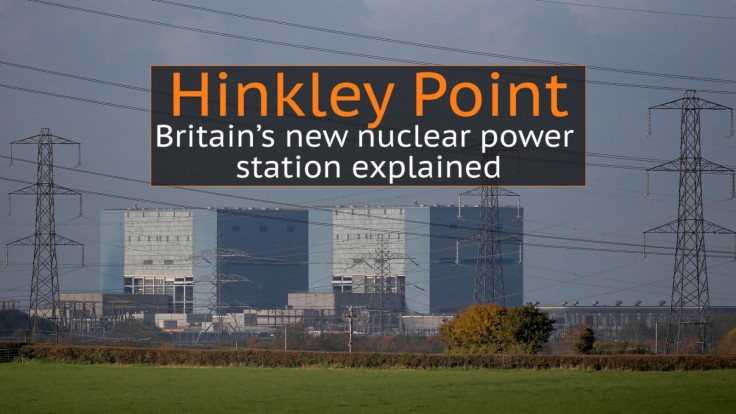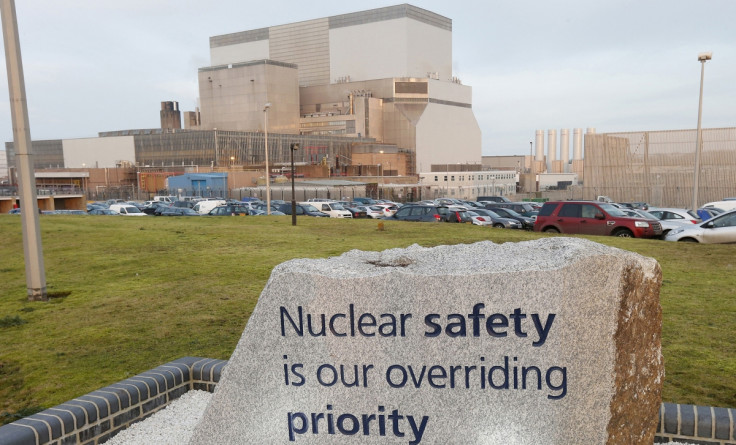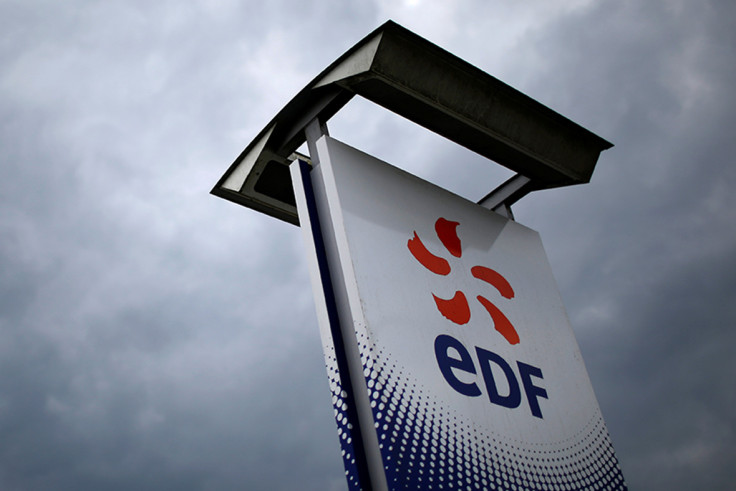China reassures UK over Hinkley Point nuclear plant security and safety concerns
KEY POINTS
- Liu Xiaoming says mutual trust should be treasured as the UK rethinks Hinkley Point nuclear project.
- French unions insist Hinkley deal null and void.
- The unions accuse EDF chairman Levy of withholding crucial information from board members.
The relationship between the UK and China is at a crucial historical juncture right now, warned China's ambassador to the UK, as the fate of Britain's Hinkley Point nuclear project awaits new Prime Minister Theresa May's stamp of approval.
Liu Xiaoming reminded the UK that China is the UK's second-largest non-European trading partner. It is also "one of the key destinations for Chinese companies seeking to invest overseas."
Writing in the Financial Times, the ambassador warned: "It has not been easy for China and the UK to have come this far. As long as both sides cherish what has been achieved and continue to expand and deepen our co-operation across the board, bilateral relations will maintain their strong momentum and work for the wellbeing of both the Chinese and British people."
Liu highlighted the fact that over the past five years, Chinese companies have invested more in the UK than in Germany, France and Italy combined. "An important reason why this has been possible is that both China and the UK have consistently respected and trusted each other."
"If Britain's openness is a condition for bilateral co-operation, then mutual trust is the very foundation on which this is built."
China assures the UK on security concerns
The Chinese ambassador acknowledged that building a nuclear plant involves a huge amount of financial resources and enormous risk, hence why multi-national co-operation is an accepted global practice. He noted that even in China, many of its nuclear reactors are built in co-operation with US, Canadian, French and Russian companies.

In reassuring UK's security concerns, he said: "Thanks to the safeguards of international standards, there has never been a concern that foreign companies might control China's nuclear reactors. The rapid progress of China's nuclear power industry is proof of the success of international co-operation."
Liu also reminded the UK that Britain has a "state of the art supervision regime and legal system" and that its regulatory bodies are experienced and adequately resourced to ensure the safety of nuclear plants in the country.
He highlighted China's "fine record of 30 years of safe operation of nuclear facilities" adding that its nuclear energy programme and supervision are highly acknowledged by international agencies. In addition, the three partners of the Hinkley Point project are members of the International Atomic Energy Agency and that both the French-owned EDF and Chinese partners are subjecting themselves to both international and British standards.
The ambassador also praised China Guangdong Nuclear Power, the biggest nuclear power provider in China. He pointed out that CGNP is also the world's biggest builder of nuclear reactors, having been involved in the building of one-fifth of the world's nuclear generators.

The UK needs Hinkley Point
However, Liu pointed out that the Hinkley Point project is "a significant option" for the UK to meet its demand for electricity. He noted that according to the UK's energy white paper, only one nuclear power plant will still be running by 2025, raising the risk of major power shortages.
"Britain has long been a pioneer in the field of civil nuclear energy, and once took pride in its clean and effective power plants." However, he said that after a 20-year halt in its nuclear programme effectively meant that Britain's 15 reactors are approaching the end of their intended working life.
Hinkley Point not the result of some 'whimsical idea'
Liu also reminded all parties that the project has been the "considered outcome" of a mutually beneficial tripartite partnership and that the deal was researched, verified and approved by not only the authorities in the UK and France but also the European Commission.
"Hinkley Point is not the result of some whimsical idea or rushed decision," he said. The ambassador wrote that after 10 years of preparations, the project is ready to move ahead.
EDF unions say deal null and void

Separately, three unions representing 80% of EDF's workforce, claim that Jean-Bernard Levy, the chairman of the company knew that the UK government would delay its decision on Hinkley before the utility's board gave the final go ahead for the investment.
"Our three organisations are now saying enough is enough," the CGT, CFE-CGC and FO unions said, reported The Times. They are claiming that the approval given on 28 July was null and void because some board members were unaware of the UK's decision to delay its go-ahead.
The unions have initiated a legal challenge, insisting that some board members were aware of crucial information pertaining to the project while others, including the workers' representatives were not. The crucial information withheld included the UK government asking for more time to consider the project, a few days before the board meeting.
EDF however said that Levy had no knowledge of a further review by the UK government. "All that was known ... was that the signing ceremony originally proposed for Friday July 29, would be postponed, EDF said.
Levy has threatened legal action against the union over the claims that he had lied about what he knew.
© Copyright IBTimes 2025. All rights reserved.






















